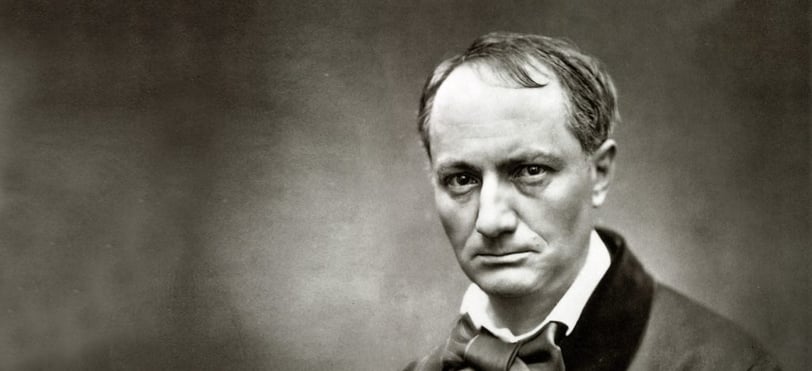Creativity and Lifestyle: Debunking the Baudelaire Model Myth
A creative mind is often linked to a chaotic lifestyle: smoking, alcohol, and drugs seem to be viewed as essential and indispensable to the creative process. However, science tells us the exact opposite: creativity thrives in a healthy body and a balanced mind.
Federico Manzoni
8/31/20242 min read


In popular imagination, the creative individual is often associated with a chaotic and self-destructive lifestyle. Artists, writers, designers, and other brilliant minds are frequently depicted as deriving inspiration from sleepless nights, alcohol and drug consumption, and living on the fringes of societal norms. This myth of the "cursed genius" persists, especially in academic circles, where the idea that excess and indulgence are fundamental ingredients for creativity is romanticized. When I attended the Design Faculty at Politecnico di Milano, the common perception of a designer was akin to a modern Baudelaire: streams of alcohol, packs of cigarettes, sleepless nights, total disorganization, and a touch of drugs seemed like the perfect recipe for the ideal creative. I too chased that lifestyle, believing it would make me more creative. The result was the opposite, especially in the long run. Creativity flourishes in a healthy body and a trained mind. And it's not just my opinion; it's what science says. For my Italian friends who will read this post (which I fear will be very few), I recommend following the blog and YouTube channel of "Valerio Rosso."
The Science of Creativity: A Healthy Body for a Creative Mind
Several studies have shown that a healthy lifestyle, characterized by good nutrition, adequate rest, and regular physical activity, is closely linked to greater creative capacity. Physical exercise, in particular, stimulates the brain in ways that encourage the generation of new ideas. A study conducted at Stanford University discovered that running increases creativity by up to 60%. During physical activity, the brain releases endorphins, hormones that improve mood and foster divergent thinking, a cognitive process essential for creativity.
Contrary to the myth that alcohol and drugs can fuel creativity, numerous studies show that these substances have detrimental effects on the brain, especially in the long term. For instance, alcohol, in small doses, may temporarily lower inhibitions and boost creativity, but it severely impairs concentration and critical thinking, both crucial for the creative process. Drugs, particularly heavier ones, can destroy brain tissue and permanently alter brain chemistry, leading not only to reduced creativity but also to serious mental health issues.
A study published in The Lancet Psychiatry found that substance use is often correlated with mood and anxiety disorders, which can, in turn, reduce the ability to work creatively and productively. Even though some substances may induce a state of altered consciousness that temporarily seems to enhance creativity, the long-term costs far outweigh the benefits.
Lifestyle and Creativity: The Importance of an Integrated Approach
Creativity is not a mystical gift that emerges from chaos but the result of a complex cognitive process that greatly benefits from a balanced lifestyle. Eating well, getting enough sleep, exercising regularly, and taking care of mental health are all factors that contribute to maintaining a sharp and innovative mind.
The idea that one must live on the edge to be creative is a harmful myth not supported by scientific evidence. On the contrary, cultivating a healthy body and mind is the best way to nurture creativity and ensure it can express itself to its fullest potential.
References
Oppezzo, M., & Schwartz, D. L. (2014). Give Your Ideas Some Legs: The Positive Effect of Walking on Creative Thinking. Journal of Experimental Psychology: Learning, Memory, and Cognition, 40(4), 1142-1152. doi:10.1037/a0036577
Get in touch
Address
20, Molgora St.
Camparada, MB, 20857 - Italy
Contacts
+39 333 29 47 530
federico.manzoni@outlook.com
